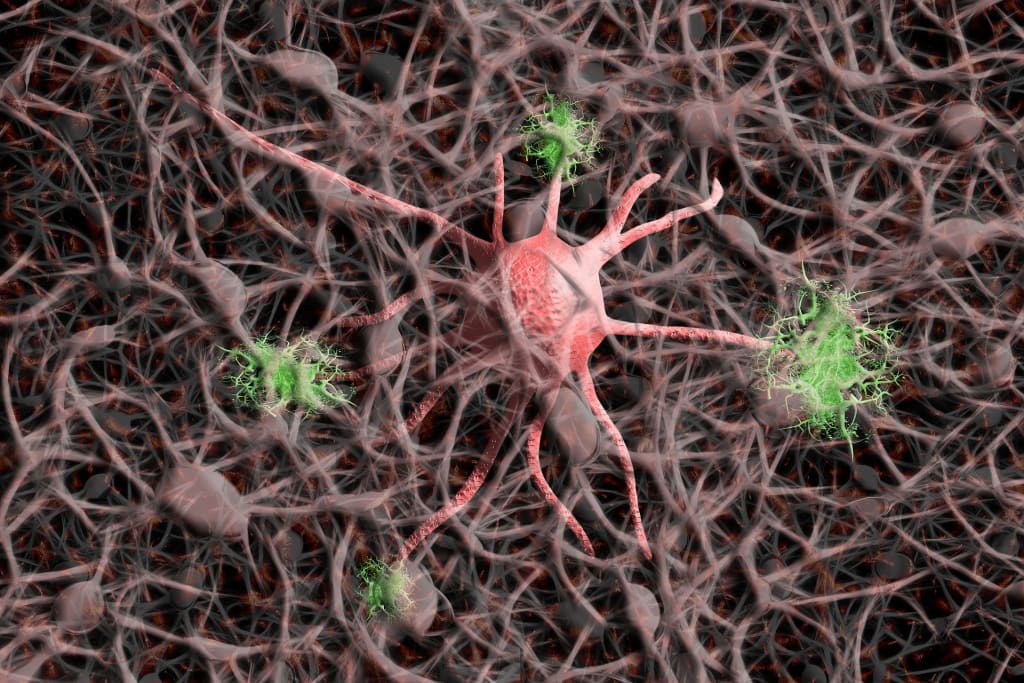7 Mistakes That Can Increase Your Risk Of Alzheimer's, Dementia, Memory Loss, and Cognitive Impairment 7 blunders that might raise your chance of acquiring Alzheimer's, Dementia, memory loss, and aggravate cognitive
Do you fear dementia or memory loss in old age? You cannot change your genes, it is true. Or a mishap that wasn't your fault. But what about certain bad practices that might make you prone to Alzheimer's or dementia? Here are some dementia-related behaviours or risk factors that you may be able to manage.

IMPORTANT HIGHLIGHTS
- Memory is a skill that is influenced by both brain health and physical fitness.
- However, being born with a fit physique is not enough to assure cognitive skill retention as you age.
- Some practices may predispose you to dementia and memory loss in your golden years.

The phrases Alzheimer's and dementia are frequently used interchangeably. Though the two can be intertwined in some circumstances, they are not always connected.
Dementia is a broad word that refers to a decrease in mental capacity that is severe enough to interfere with everyday living. The most prevalent cause of dementia is Alzheimer's disease. Alzheimer's is a distinct illness. Dementia isn't one of them.
Alzheimer's is a degenerative brain illness characterized by complex brain changes induced by cell destruction, according to the Alzheimer's Organisation. It causes dementia symptoms that develop with time. Because Alzheimer's often affects the area of the brain linked with learning first, the most frequent early symptom is difficulty remembering new information.
Dementia is caused by damage to or loss of nerve cells and their connections in the brain, according to the Mayo Clinic. Dementia can affect people differently and generate varied symptoms depending on the section of the brain that is affected.
Though there are some causative factors for the onset of dementia that cannot be controlled by the patient, such as advancing age, family history, Down's syndrome, immune disorders, diseases, Traumatic brain injury (TBI), and so on, there are also those factors that can be carefully avoided in order to avoid developing dementia.
According to the Mayo Clinic, below is a list of blunders to avoid
Exercise and diet: Several observational studies have found that exercise lowers the risk of cognitive deterioration. The Department of Movement, Human and Health Sciences at the University of Rome is conducting a research study called EPD (Exercise for the Prevention of Dementia) to find an affordable and safe method to demonstrate that exercise is a protective tool to delay the onset of dementia and cognitive impairment in older adults at risk. According to research, a lack of exercise raises the risk of dementia. And, while no special diet is prescribed, Although a Mediterranean-style diet rich in produce, whole grains, nuts, and seeds is known to reduce dementia risk, research shows that people who eat an unhealthy diet have a higher incidence of dementia than those who follow a Mediterranean-style diet rich in produce, whole grains, nuts, and seeds.
Excessive alcohol consumption: According to a research published on bmj.com, those who refrained from alcohol in their forties or consumed more than 14 units per week had a higher risk of dementia. Large doses of alcohol, as well as alcohol addiction, have long been recognized to produce brain abnormalities. Several big research and reviews discovered a relationship between alcohol use problems and an increased risk of dementia, particularly early-onset dementia.
Cardiovascular risk factors: Hypertension, particularly high blood pressure in middle age, has been linked to an increased risk of cognitive decline and dementia, including Alzheimer disease. Excessive blood pressure (hypertension), high cholesterol, fat accumulation in artery walls (atherosclerosis), and obesity are all risk factors. The link between high blood pressure in middle age and the development of cognitive deterioration years later has been thoroughly researched and acknowledged.
Mental tension and depression go unaddressed. The longest longitudinal research involving 17 years of follow-up, conducted by the Departments of Psychiatry (ALB, KY), Neurology (KY), and Epidemiology & Biostatistics (KY), University of California, San Francisco, found a 70% increased risk of acquiring dementia with depression. Although not fully understood, late-life depression may herald the onset of dementia.
Obesity: People with a high BMI and central obesity are at a higher risk of dementia (3.5 times increased risk). Persons with a healthy BMI who are centrally obese, on the other hand, are projected to be twice as likely as people without extra belly fat to acquire dementia, according to AlzDiscovery.org. Because belly fat, also known as visceral fat, creates hormones and substances that promote inflammation and insulin resistance, it can be harmful to the brain.
Diabetes: According to the Mayo Clinic, having diabetes may raise your risk of dementia, especially if it is poorly managed. Diabetes can lead to a number of problems, including blood vessel damage. Diabetes is thought to be a risk factor for developing vascular dementia. This kind of dementia develops as a result of brain injury, which is frequently caused by diminished or obstructed blood supply to the brain. Diabetes can cause brain abnormalities that are common in Alzheimer's and vascular dementia.
Tobacco use may raise your chance of acquiring dementia and blood vessel disease.
Other variables that might impair cognitive abilities and memory power include air pollution, head trauma, vitamin deficiencies, sleep disorders, adverse effects of certain medications, and so on. If you have any of these symptoms, you should discuss them with your doctor.
To avoid having dementia, follow these steps:
- Consume nutritious foods such as fruits and vegetables, whole grains, lean meats, and low-fat milk and cheese. With the assistance of a doctor, eliminate all vitamin deficits.
- To lose weight if you are overweight, consume a nutritious diet and exercise.
- Don't light up. If you must drink, keep in mind that moderation is the key.
- Stay away from brain trauma (injuries) and stay in a clean atmosphere.
- Yoga and meditation should be included to your anti-depressant regimen.
- Sleep on schedule, and never stop challenging your brain to learn new things when you're up.
- Aim for at least 30 minutes of exercise every day.
Disclaimer: The tips and ideas in this post are provided for general information only and should not be taken as professional medical advice. Before beginning any exercise program or making dietary changes, always with your doctor or a dietitian.






Comments
There are no comments for this story
Be the first to respond and start the conversation.